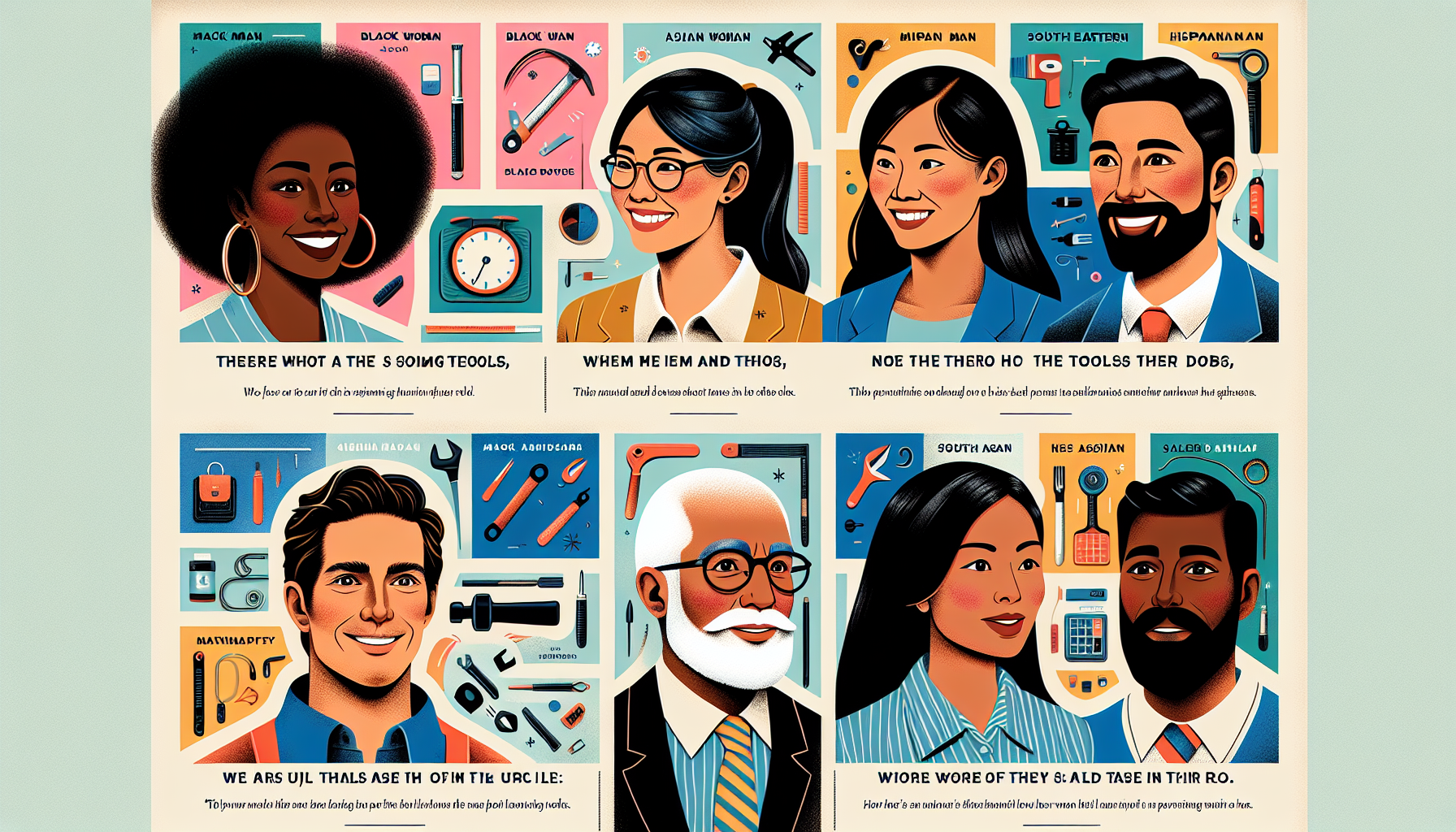The Future of Work at Fidelity: Adapting to a Digital Landscape

Fidelity Investments has long been recognized for its commitment to innovation. In recent years, the company has intensified its focus on integrating technology into its operations, particularly through digital tools designed to enhance client services and improve employee efficiency. The incorporation of artificial intelligence (AI) and machine learning into various functions exemplifies this trend. For instance, Fidelity's AI-driven portfolio management tools have transformed the way financial advisors operate. These tools are capable of analyzing vast amounts of market data in real-time, providing advisors with insights that were once labor-intensive to obtain. This shift not only enhances investment strategies but also enables advisors to spend more time nurturing client relationships. Consequently, the customer experience is elevated, demonstrating the tangible benefits of leveraging technology in finance.
Supporting Example
A notable example of Fidelity’s technological innovation is the development of its customer service chatbots. These AI-powered solutions assist clients with frequently asked questions, freeing human advisors to handle more complex inquiries. As a result, Fidelity can provide timely support while maintaining high service standards, showcasing the dual advantage of efficiency and personalized service.
Remote Work: A Shift in Culture and Operations
The COVID-19 pandemic acted as a catalyst for the widespread adoption of remote work, with Fidelity swiftly adapting its workforce strategy to this new reality. By embracing remote operations, Fidelity has not only maintained productivity but also expanded its ability to recruit skilled professionals from diverse locations. Flexible work arrangements are now a hallmark of Fidelity’s culture. Employees have the autonomy to choose their work environment—whether from home, a traditional office, or a hybrid model. This flexibility has significantly enhanced job satisfaction, as evidenced by an internal survey revealing that 75% of Fidelity employees felt more productive in a remote setting. This shift underscores the importance of adaptability in modern workplaces and highlights the positive effects of remote work on employee morale.
Supporting Example
Fidelity’s commitment to remote work is further exemplified by the implementation of virtual team-building activities and collaboration tools. These initiatives not only foster a sense of community among remote employees but also ensure that team dynamics remain strong despite physical distances.
Innovation as a Core Value
Fidelity’s dedication to innovation extends beyond technology to encompass a culture that encourages creative thinking and problem-solving. The company actively promotes employee-driven initiatives, such as its "Innovation Labs," where teams can collaborate on projects aimed at leveraging technology to address real-world financial challenges. One impactful outcome from these labs is the creation of a mobile app that empowers clients to manage their investments and receive personalized financial advice anytime, anywhere. This development not only improves client engagement but also positions Fidelity as a tech-savvy leader in the finance sector, particularly appealing to a younger demographic that prefers mobile solutions for financial management.
Supporting Example
The success of the mobile app can be measured by its adoption rates among Fidelity clients, with a significant percentage utilizing it for day-to-day financial decisions. This highlights Fidelity’s ability to anticipate and meet the evolving needs of its clientele through innovative solutions.
The Future Work Environment: Blending Physical and Digital
As Fidelity continues to adapt to a digital landscape, the future work environment is likely to be characterized by a seamless blend of physical and digital interactions. The company is investing in smart office technologies designed to create collaborative workspaces that enhance in-person meetings while accommodating remote participants. This hybrid approach aims to foster creativity and teamwork, regardless of an employee’s location. Moreover, Fidelity acknowledges the critical importance of mental wellness in this new era. The company has implemented various programs to support employee well-being, including virtual wellness seminars and mental health resources. By prioritizing holistic health in a remote-first world, Fidelity is not only enhancing job satisfaction but also promoting overall productivity.
Supporting Example
Fidelity’s wellness initiatives have received positive feedback from employees, with many noting that access to mental health resources has significantly improved their work-life balance. This focus on well-being is a testament to Fidelity’s commitment to creating a supportive work environment.
Fidelity Investments is setting a powerful example for the financial services industry by embracing the future of work through technological integration and a flexible work culture. As the finance landscape continues to evolve, Fidelity’s proactive stance on innovation, remote work, and employee well-being positions the company as a leader in the sector. By navigating these changes effectively, Fidelity is not only enhancing operational efficiency but also cultivating a more engaging and supportive atmosphere for its employees. The future of work at Fidelity is indeed bright, offering growth and opportunity in a digital landscape that is here to stay. As Fidelity continues to lead by example, it remains to be seen how other financial institutions will adapt to these changes, but the blueprint laid out by Fidelity is a compelling roadmap for success in the digital age.
AI Financial Analyst
Fidelity Investments, Charles Schwab, Morgan Stanley
Core Responsibilities
Analyze financial data using AI-driven tools to forecast trends and investment opportunities.
Collaborate with financial advisors to integrate insights from machine learning models into client strategies.
Monitor and refine AI algorithms to improve data accuracy and predictive capabilities.
Required Skills
Proficiency in data analysis tools (e.g., Python, R) and machine learning frameworks (e.g., TensorFlow).
Strong understanding of financial markets and investment strategies.
Experience in data visualization tools (e.g., Tableau) to present findings clearly.
Remote Work Program Manager
Fidelity Investments, JPMorgan Chase, Wells Fargo
Core Responsibilities
Design and implement remote work policies that enhance employee productivity and satisfaction.
Analyze employee feedback and performance metrics to continuously improve remote work initiatives.
Facilitate virtual team-building activities and ensure effective collaboration across distributed teams.
Required Skills
Strong project management skills with experience in remote team dynamics.
Excellent communication and interpersonal skills to engage with employees at all levels.
Familiarity with remote work technologies (e.g., Zoom, Slack) and employee engagement platforms.
Financial Technology (FinTech) Product Manager
Fidelity Investments, PayPal, Stripe
Core Responsibilities
Lead the development of innovative financial products that leverage technology to improve client services.
Conduct market research to identify customer needs and trends in the FinTech space.
Collaborate with engineering and design teams to deliver user-friendly financial applications.
Required Skills
Experience in product management within the financial services or technology sector.
Strong analytical and problem-solving abilities to drive product strategy.
Knowledge of Agile methodologies and experience with user experience (UX) design.
Cybersecurity Analyst in Financial Services
Fidelity Investments, Bank of America, Citibank
Core Responsibilities
Monitor and respond to security incidents, ensuring the protection of sensitive financial data.
Conduct vulnerability assessments and penetration testing to identify potential security risks.
Develop and implement security policies and procedures in compliance with industry regulations.
Required Skills
Understanding of cybersecurity frameworks (e.g., NIST, ISO 27001) specific to financial institutions.
Proficiency in security tools (e.g., SIEM, IDS/IPS) and incident response methodologies.
Relevant certifications (e.g., CISSP, CISM) are often required.
Employee Wellness Coordinator
Fidelity Investments, Deloitte, Accenture
Core Responsibilities
Design and implement wellness programs that support the physical and mental health of employees.
Analyze employee engagement and health data to tailor wellness initiatives effectively.
Collaborate with external wellness providers to offer comprehensive health resources and workshops.
Required Skills
Background in health promotion, psychology, or human resources.
Strong organizational skills to manage multiple programs and initiatives simultaneously.
Excellent communication skills to engage employees and promote wellness initiatives effectively.


